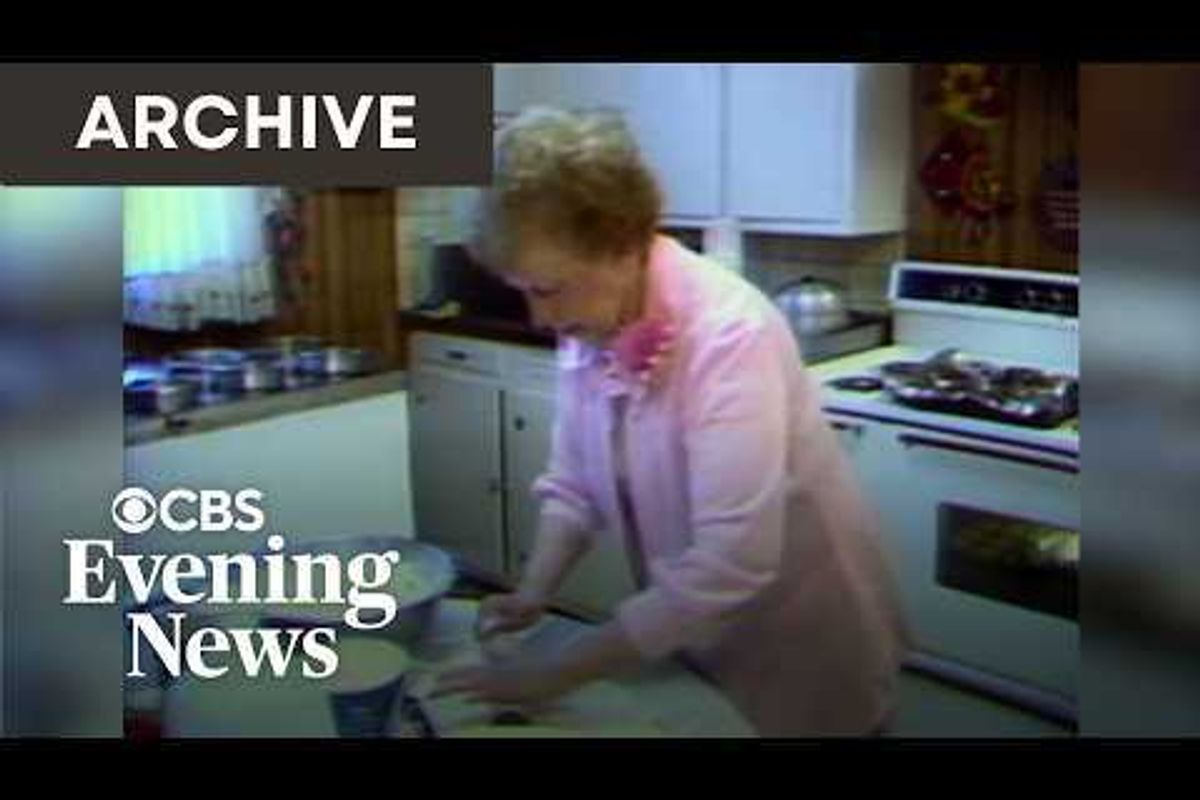People love this 1983 clip of a southern grandma feeding her community from her modest kitchen
"I always get what I want, but I know what to want," she said.
Agatha Burgess cooked all day, five days a week, for anyone who showed up.
History remembers extraordinary people who accomplish great things, lead big movements, create new inventions, and make an indelible mark on the world. But what about the individuals who dedicate their time and energy to making their local community, however small, a better place?
Those everyday heroes rarely get lauded in posterity, but thanks to human interest stories, some people get the flowers they never asked for long after they're gone. Enter Agatha Burgess, an 80-year-old grandmother who, in 1983, had a visit from CBS Evening News as she went about her normal weekday business of feeding her community, simply because she could.
- YouTube www.youtube.com
In the footage from the archives, Burgess is shown bopping about her modest kitchen, where she's been working since 5:00 a.m. She's surrounded by pans and tins and bowls, which she's using to make corn muffins, rice, dressing, peach cobbler, and more for residents of her small town of Buffalo, South Carolina. She's done this for 15 years, not as a business, but as a service to her community. She said she didn't have any desire for a "big, fine home" and that she'd always wanted to "live by the side of the road and be a friend to man."
"I always get what I want, but I know what to want," she said.
Some meals were sent out to shut-ins in the community, delivered by Meals on Wheels volunteers. She made sure those meals were always ready by 11:00 a.m. After that, people also came to her home to get a meal. If they were able, they'd drop $2.75 per meal into a box on the side table to cover the costs, even making their own change on the honor system. But no one was ever turned away if they couldn't pay.

Burgess didn't have a large home, so people would crowd into her dining room and kitchen to eat the home-cooked meals she made single-handedly. After people had eaten and left, she would do the dishes and start on her baking for the next day. This was her life from 5:00 a.m. to 10:00 p.m., five days a week.
Why? Because she loved doing it. She said, "This guy asked me the other day, said, 'Miss Burgess, why don't you stop and rest?' I said, 'What would I have to live for?' Because these people come in every day. They mean so much to me. I just love. I fall in love with people."
Her sister said she might end up regretting the honor box, that someone would end up ripping her off. But Burgess said that God had always taken care of her, and if someone stole from the box, God would take care of them, too.
Burgess's quote about being "a friend to man" comes from the poem "The House By The Side Of The Road" by Sam Walter Foss, the last stanza of which reads:
Let me live in my house by the side of the road,
Where the race of men go by-
They are good, they are bad, they are weak, they are strong,
Wise, foolish - so am I.
Then why should I sit in the scorner's seat,
Or hurl the cynic's ban?
Let me live in my house by the side of the road
And be a friend to man.
People loved hearing about Burgess's extraordinary retirement in the resurfaced clip from the CBS News archives:
"She has the best attitude about life. She is so grateful for what she has."
"This is one of the most wholesome things I’ve ever seen."
"'I don't want your big fine home. But I'm glad you got it.' There's beauty in being content with what you have, and being happy for people. What a sweet lady."
"'I always get everything I want, but I know what to want' might be the wisest thing I’ve ever heard."
"What a wonderful woman. My dad used to eat there for lunch while working his first job out of college. God bless."
"I'm a grown man and I'm sitting here watching this crying. I know you're no longer with us, but God bless you, Agatha. Did you ever realize all the lives you blessed?"
Burgess died in 1992 at the age of 89. Though she didn't spend nearly two decades cooking for friend and stranger alike in order to get praise or accolades, there's something truly beautiful about people seeing her service over four decades later and giving her the flowers she deserved.

